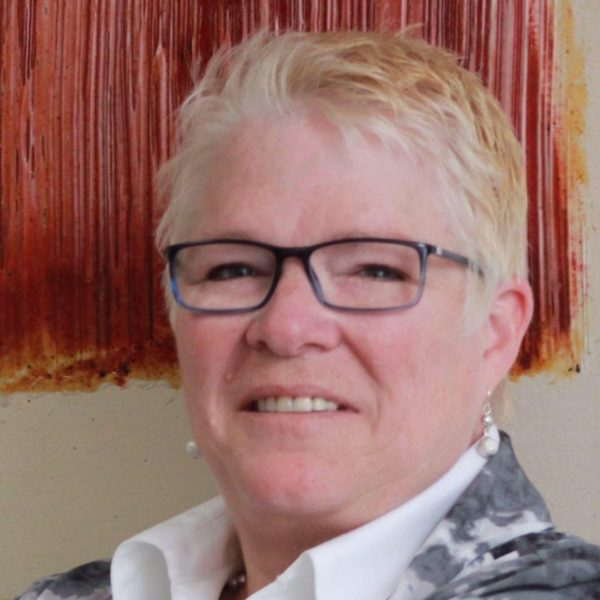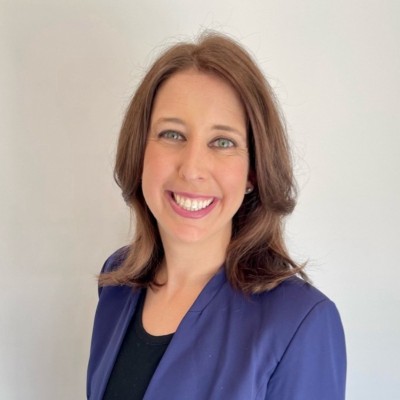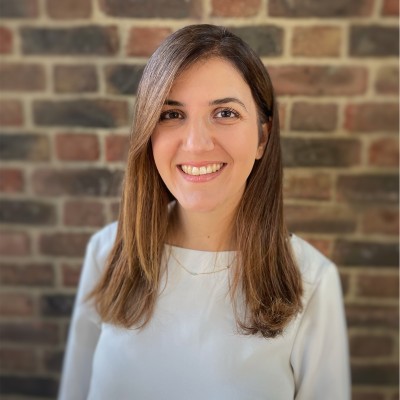Episode 73: Sheevaun Thatcher on Cultivating Shared Accountability with Sales
5K Views | 14 Min Read
Shawnna Sumaoang: Hi, and welcome to the Sales Enablement PRO podcast. I am Shawnna Sumaoang. Sales enablement is a constantly evolving space, and we’re here to help professionals stay up to date on the latest trends and best practices so they can be more effective in their jobs.
Today, I’m excited to have Sheevaun Thatcher from RingCentral join us. Sheevaun, I would love for you to introduce yourself, your role, and your organization to our audience.
Sheevaun Thatcher: Sure. I’m Sheevaun Thatcher and I’m the head of global sales and growth enablement at RingCentral. I’ve been there about three years, created the enablement program from scratch, and now I have an amazing team that’s in support of all the enablement programs at RingCentral.
And RingCentral is an application, a tool, if you will, that allows people to message, call, meet, engage – all in the cloud. It’s not on-premises. And it’s a wonderful application. We use it for everything we do in enablement.
SS: Now, I’d love to shift gears a little bit if you don’t mind. You recently participated in a panel at our event at the Sales Enablement Soirée in San Francisco, and you said during the panel that sales enablement is responsible to sales rather than for sales. I would love for you to explain that distinction to our audience.
ST: Sure. So, one of the traps that a lot of sales enablement people get into when they’re starting to create programs in companies is the sales leaders look at sales enablement as the trainers. They are just the trainers. And being just the trainers, it’s their responsibility to make sure that all the salespeople are doing what they need and closing deals and all of that.
What happens with that is the sales leaders have a tendency to say, “enablement, you’re responsible for making sure that our salespeople close deals.” We don’t have the ability to go out there. Not saying that we couldn’t do it, all of us have a sales background. That’s where we came from, but we don’t have the ability to go out there and close the deal for the rep. So, we are not responsible for sales, but we are responsible to the sales team to ensure that they get what they need.
There’s a story I tell that makes it very clear about what I mean by that. When I was doing my stand-and-deliver, coming to RingCentral, I finished my presentation, had talked about what my vision was and how I ran it and all that kind of good stuff. And the SVP of sales was down in LA and I was here. I heard the crackling on the conference line and they say, “well, this is all well and good, Sheevaun. I love what you’re saying. It’s great. What are you going to do if my people don’t do it?” And my answer was, “I’m not going to do anything. What are you going to do if your people don’t do it?” Because if we don’t have a partnership between sales leadership and sales management and the enablement team, none of this is going to work. You can have the most money invested in these programs. You can have the best team in the world. You can have the best programs in the world, but unless that partnership is there and the right people are responsible for and the right people are responsible to, then the programs will ultimately fail.
And I see that all too often. So, it’s making sure that accountability and ownership of the sale stays where it should be. And accountability and ownership of the support programs in order to help our sellers help our customers buy is up to us.
SS: Absolutely. Absolutely. Now, how do you work with the sales leaders to really establish that shared responsibility though, and gain their support for the enablement programs?
ST: So, we involve them very heavily in the programs when we are initially talking about them. Right? I talk about initiatives, insights, and impact. So, when we have the insights, when we discover the gaps, because that’s what my team does, is we discover the gaps that are there and we come up with the initiatives to fill it.
We spend a lot of time with our sales leaders to say, what should the initiative look like? What do you believe is the requirement? We ask a lot of questions. We do a lot of discovery because if the sales leadership don’t believe they have part ownership in these programs, then they don’t have accountability either.
So, we make sure that they are part of that when we’re coming up with the initiatives and then we have a joint outcome. What is the outcome? If there is no definable outcome and you can’t measure it by time, resources, or money of some factor, then why are you doing it? So, we make sure that whatever it is that we do, there is the partnership in place. There is a mutual accountability, joint accountability, and then these programs are a lot more successful.
SS: Yes, absolutely. I think sales leaders are definitely our strongest partners within the organization. I want to shift and talk a little bit about something that you also mentioned. You mentioned a culture of learning, which I love. You talked about the importance of creating that through sales enablement. What are some of the ways that you’ve fostered that kind of culture at RingCentral?
ST: So, the first thing is we make the enablement and the training part of it fun. We have carnivals, online carnivals. We have things like the balloons and the beads and chess and whatever it is that we need in order to get people engaged. We do that already and it’s very much self-directed, so people can do it on their own schedule.
When they need to get it done, we make sure that there’s not too much of it. Right? What we hear all too often is people are putting enablement programs in place, and then they want to run them on the last month of the quarter, or they want to run them on the last month of the fiscal year. And you can’t do that. So, we have a metaphorical contract with the sales leadership to say – and again, this goes to the responsible to not for – we will make sure that we keep the number of hours of enablement to a set number. In our case, it’s eight hours for sellers, and it’s 12 hours for managers per quarter. You make sure it gets done. So, we have that agreement, right?
We are also the gatekeepers to salespeople. So, there are a lot of people, Scott Santucci used this term years ago, which was random acts of sales enablement. And they’re going on all over the place all the time. Everybody wants to do the right thing. Everybody wants to be invested in how the company does, and so everybody wants to put things in front of salespeople, which from a sales perspective can be absolutely overwhelming. There’s fatigue. There’s just too much coming in.
So, our role in enablement as well as being the gatekeepers for this information is to make sure, number one, it’s consumable, it’s on message, and it fits within the hours that we have. And we also need to make sure whether or not it needs to be done live or whether or not it can be on our portal. And we simply highlight that it’s there. So, by being the gatekeepers, we allow the sellers and we encourage the sellers and support the sellers to sell, not to be caught in a lot of administrivia.
Then, they do the learning because they all understand that what we’re putting in front of them is going to affect what they do in their jobs from a professional standpoint, right? Everybody wants to do better, sell more, have a bigger commission check. Right? So, we understand that. And part of our background too, as I said, almost everybody on my team has a sales background. We’ve been there. We know what it’s like. We understand that salespeople are not lazy. It just makes me nuts when I hear enablement people say that. They’re not lazy. There is just so much that has to be done that it’s not a matter of them not making time. It’s a matter of them not making it a priority. So, you have to figure out how to make learning a priority during their work and during their processes through the cycle.
SS: I think there’s another benefit too. I’d love for you to elaborate to our audience on how a culture of learning can also help kind of improve the quality of relationships externally with customers and helping to really build customer confidence.
ST: Oh yeah. It absolutely does. So, when we do our enablement, all the programs are based on something – STC, which is “selling to curiosity”. Our programs are based on the open-ended questioning. I already talked about this with the relationship with sales leaders, is making sure that we are in this together. So, our salespeople aren’t trying to sell to the customer. Our salespeople are trying to help the customers buy from us.
We do the same thing when we are introducing our programs on the enablement side. We are not forcing the programs onto the sellers, we are helping the sellers understand why using the programs are going to help them, right? So, it’s not only what we do, but it’s also how we sell as an organization with our customers and putting our customers first. My own people ask a lot of questions. We teach the sellers how to ask a lot of questions. It puts the customers first, and it shows that RingCentral really cares about what their objectives are. What are they trying to accomplish? What are the business impacts that they’ve got? One of the questions I love to ask is, a year from now, you’re on stage receiving an award, Mr. Customer – what is it for? Because then you can figure out very clearly what is it that they are really concerned about, where they really want to get to, and what they consider success.
And so again, it’s outcome-based. Then when you do that, and we show that we treat our employees very well, they’ll treat the customers well. I think it was Richard Branson who said, “you treat your employees well and they’ll treat your customers well.” We live that. The company does that, not just enablement. The whole company works that way.
SS: Absolutely. On the same track, my last question for you – and thank you so much for your time today – but my last question for you really has to do with something that you said in a recent interview. But I also think it dovetails nicely from the conversation we’re having right now. You said that you envision enablement expanding beyond sales to focus on other teams. Why do you think enablement should expand its focus and how can enablement benefit those audiences?
ST: So, think about the challenges that our sellers have, right? There are inconsistent processes. There is outdated content. There’s limited accountability. No fundamental knowledge, right? Why does the company exist? Why are we doing what we do? And typically, a lack of communication, not only vertically up and down the hierarchy, but sideways as well with cross-collaboration among the business units. That’s no different for the whole company.
We focus on sales, but if you look in the company as a whole, the whole company has those issues. There’s yet to be a company or a peer of mine that I’ve spoken to that isn’t dealing with just that. So, from a corporate perspective, imagine that you can take all of the programs that you’ve done with enablement that are being effective and really helping your sellers and make everybody in the company an enabled seller. You’ll get unity. You get consistency. You build that culture of learning through the whole company. You can create raving promoters of not only the programs, but the company as well. Productivity goes up, attrition goes down.
So, there’s no reason why the programs we run for sellers can’t be modified and use that same approach that we use for the whole organization. Because when your whole organization is a seller, then everybody says the same thing, and as you said, productivity goes up and attrition goes down. Single message: One RingCentral, something we talk about all the time. We work as one.
SS: I love that lens. Thank you so much for taking the time to talk to us today. I loved all of the insights that you’ve provided to our audience. Thank you.
ST: It was my pleasure. Thank you very much. And stay safe.
SS: Oh, absolutely. You as well. And same to our audience. Thanks for listening. For more insights, tips, and expertise from sales enablement leaders, visit salesenablement.pro. If there’s something you’d like to share or a topic you’d like to learn more about, please let us know. We’d love to hear from you.














